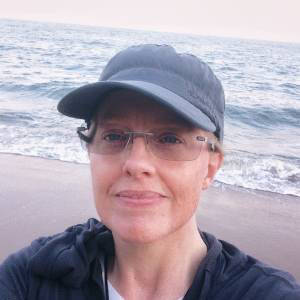push
Crazy pretty this morning. Beautiful light. Happy birds. Perfect temperature.
I attended a wonderful webinar this morning. It had four panelists from four businesses in four countries: India, Guatemala, Senegal, and Kenya. They were discussing how they were impacted by COVID 19 and how they were reacting. It was fantastic to hear such positive, proactive, clever approaches. It gave me ideas for one of our projects and it cheered me so much that I shared the stories with Karen and the stories cheered her too.
One is a solar home company. People pay for the system by sending money monthly through their cell phones. The business model is called Pay As You Go or PAYG. It allows households to finance the cost of a solar home system and, frankly, to feel safer buying it because if it stops working they'll stop paying. As a result of the payment method the company has a massive number of cell phone numbers. They realized they could text their customers, who are all rural, health information from the government and WHO.
Another was a water filter company. They use profits from selling in urban areas to subsidize water filters in rural areas. They closed off the factory to tours. Only employees can enter. They sanitize every employee as they come in to work. They taught them hand washing (the extended hand washing we all do now and never did before). They provide PPE. Every Monday they give every employee a box of food to meet their family's entire meal needs for the week so no one in the family has to go food shopping, risking bringing CV 19 home, giving it to the employee, who then might bring it into the factory.
Furthermore, while water filters are considered essential, the stores in the malls that used to sell them have all closed. In 48 hours they transitioned to selling them online and having a delivery company that treats its employees well deliver them. They made a video showing customers how to install them. They now keep a higher margin of the filter price, making it possible to further subsidize the ones they sell in rural areas. People in rural areas are less familiar/comfortable with buying online, so they've distributed rural managers' cell phone numbers.

Comments
Sign in or get an account to comment.


